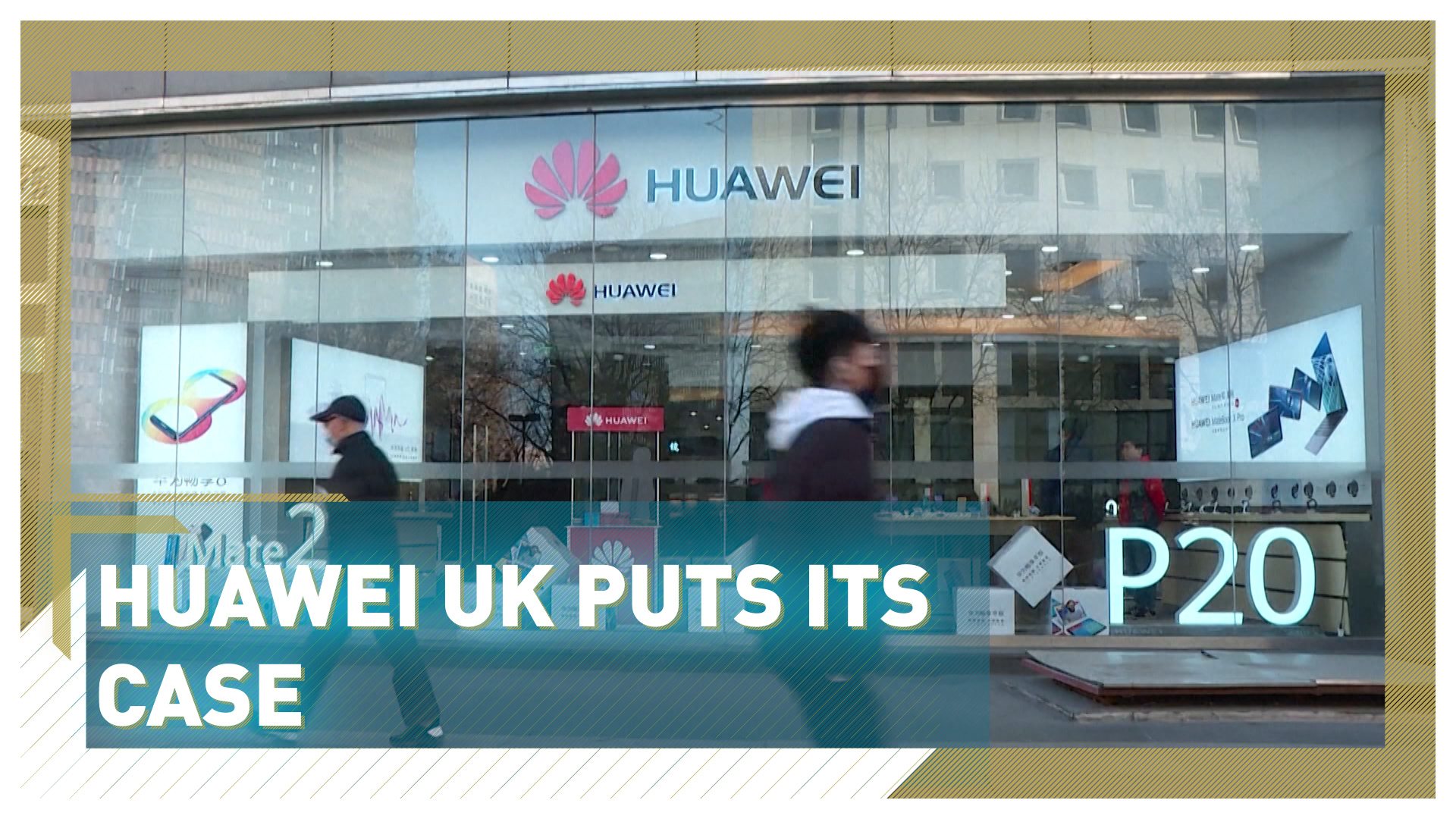03:12

Huawei has gone on a charm offensive in the UK, emphasizing it is a private company with operations in 170 states to show it can be trusted with sensitive data while building the country's 5G network.
The Chinese tech giant has bought full-page adverts in many national newspapers as it tries to speak directly to the British public and assert that it is independent from the Chinese state and does not share sensitive data.
In an interview with CGTN Europe, Huawei UK's vice president, Jeremy Thompson, said the Chinese firm had been working in the UK for almost 20 years.
"We have helped build the 3G and 4G networks, some people question our role in 5G, so we wanted to state our commitment, that we're committed to the UK and committed to invest and build the networks here in the UK," he said.
It comes as the UK government is undertaking a fresh security review of the company, with Prime Minister Boris Johnson under pressure to further reduce Huawei's role in the 5G network – having announced already a 35-percent cap on its involvement.
"Because of some of the confusion that's been put into the press, we feel that it's really important that we state our case," said Thompson.
"Our case is that we're a privately owned company, owned by 90,000 of its employees and we're independent of the Chinese state. We operate in 170 countries worldwide and about half of our revenue comes from outside China."

Huawei operates in 170 countries and has some of the most advanced technology in the world. /Mark Schiefelbein/AP
Huawei operates in 170 countries and has some of the most advanced technology in the world. /Mark Schiefelbein/AP
In January, Huawei was allowed to play a limited role in the UK's 5G networks, following a major review by the government. At the time, British intelligence agencies said they found no evidence the company was used for spying by authorities in Beijing.
But, it was labeled a "high-risk" vendor and only allowed a maximum market share of 35 percent in the UK's "non-core" networks – which include less sensitive aspects of 5G technology, such as masts and antennae.
"The government has restated the decision stands and we're focused on implementing that decision," said Thompson.
In recent months, some British lawmakers, mainly from Johnson's Conservative Party, have called for Huawei's role to be scaled back.
There's also pressure from the other side of the Atlantic. U.S. President Donald Trump has called on the UK to ban Huawei from its 5G networks, something the U.S., Australia and New Zealand have already done.
"Britain can join the United States and other powerful nations to work together on a 5G solution that doesn't empower Chinese intelligence," said Tom Cotton, a Republican U.S. senator.

The UK government is under pressure not to use Huawei for its 5G network. Alastair Grant/AFP
The UK government is under pressure not to use Huawei for its 5G network. Alastair Grant/AFP
Those calling for a ban on Huawei say that working with the company would lead to security concerns, because of its links to the Chinese government. That's a worry with 5G, given that it's a nascent technology and highly dependent on data.
Huawei's Thompson rejected those claims: "About 50 percent of our revenues come outside China, and so we abide by the laws and regulations of 170 countries worldwide.
"We've stated that many, many times. Our business would collapse overnight if we were to even contemplate that, which we don't – we've never been asked to hand over data by the Chinese government."
For the UK government, the Huawei issue has become a difficult dilemma.
There's the pressure from Washington and some colleagues to consider. On the other hand, Huawei's 5G technology is some of the most advanced and cost-effective in the world.
According to research at Enders Analysis, banning Huawei could cost the UK's network industry 1.9 billion U.S. dollars and push back the rollout of 5G in the country by two years.
For now, UK ministers are staying tight-lipped on the issue as they weigh up their stance. As for Huawei, Thompson said it is focusing on more investment in the country, despite the growing pressure.